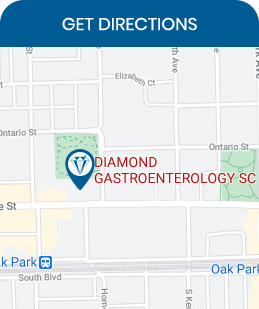4 Questions to Ask Your Gastroenterologist
Learn more about your digestive system and the treatment options available at Diamond Gastroenterology. Call or visit us online to book an appointment. We serve patients from Oak Park IL, and surrounding areas.


Additional Services We Offer
▸ Endoscopy
▸ IBS Treatment
▸ Crohn’s Disease
▸ Ulcerative Colitis
▸ Abdominal Pain
▸ Colonoscopy
▸ Rectal Bleeding
▸ Colon Cancer Screening
▸ Procedures
▸ Specialties
Additional Services We Offer
▸ Endoscopy
▸ IBS Treatment
▸ Crohn’s Disease
▸ Ulcerative Colitis
▸ Abdominal Pain
▸ Colonoscopy
▸ Rectal Bleeding
▸ Colon Cancer Screening
▸ Procedures
▸ Specialties





